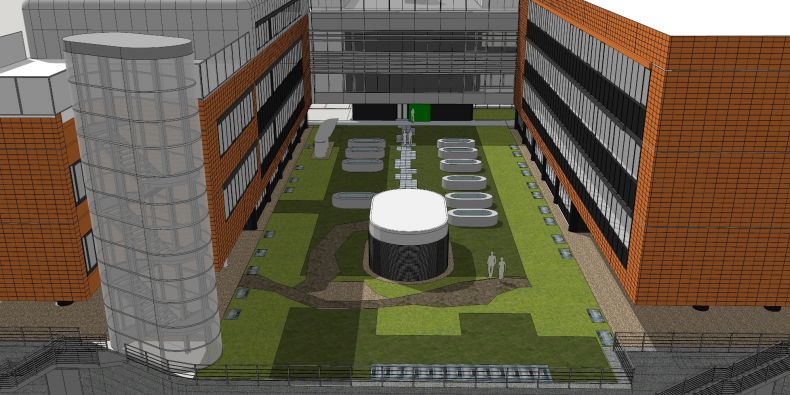The Research Centre for Toxic Compounds in the Environment (RECETOX) at Masaryk University will build new laboratories and a biobank for the preservation of environmental and human samples at the university’s Bohunice campus. The facility will make it possible to conduct comprehensive studies of the impact of the environment on people and reveal its role in the increasing number of cases of chronic diseases. The university received almost a quarter-billion Czech crowns from the EU Operational Programme Research, Development and Education.
During the course of their lives, people are subject to the influence of their environment, including polluted air and water, chemical substances, lack of exercise, alcohol consumption, smoking, medicine and drug abuse, noise, and stress.
“To ascertain the impact of a contaminated environment on humans, it is not enough to measure the concentration of pollutants in the air, water, food, or home. You need to find how much such pollutants accumulate in the human body and what do they do there. Such data can only be obtained through long-term observation of selected population groups,” says Jana Klánová, the director of the Faculty of Science RECETOX centre, about the mission of the project.
Epidemiological research is based on long-term observation of large groups of people. The researchers monitor their lifestyle, what they come to contact with, how much of foreign substances accumulates in their tissues, and, if relevant, how these substances interact with their genes. For this, they need blood, urine, or saliva samples from the study subjects. After processing the bodily fluids, they store them in small quantities so that they can be used in future research.
The samples require not only perfect storage conditions, but also meticulous labelling and robotic manipulation to avoid human errors. The biobank being constructed at the University Campus Bohunice will provide all of that. There will be new laboratories as well as fully automated storage areas.
The current lab capacity of RECETOX, which serves to measure a broad range of toxic substances in the environment and human tissue, will be extended to include laboratories for the study of substances natural to the human body, such as metabolites, which can reveal a lot about how an organism functions and reacts.
The new labs will also serve to study the human microbiome – the community of microorganisms found on human skin and mucous membranes or in the mouth and intestine, which can influence the response of the immune system. As Klánová says, “We will be looking for early indicators of chronic diseases that might be used in the future for early diagnosis and prevention.”
The construction of the new bank and laboratories is due to start this year; they will be finished in the spring of 2019. However, even now the MU researchers, in collaboration with the University Hospital Brno, are reaching out to pregnant women at the Department of Obstetrics and Gynaecology to form the basis of a new group of subjects for long-term observation.
“It is great that we are able to harness the unique position of the University Hospital Brno within the healthcare system with the scholarly excellence of the Masaryk University and implement a project with such a major and long-term potential,” says Tomáš Kašpárek, University Hospital Brno deputy for science, research, and education and head of the Department of Psychiatry of the University Hospital Brno and the MU Faculty of Medicine. “The project could give us relevant and otherwise unattainable information to help us understand the formation of chronic physical and mental conditions and we will try to translate this information back into prevention and treatment.”
Experts from the RECETOX centre will work on this study together with other MU researchers (from the Faculty of Medicine, Faculty of Science, Faculty of Social Studies, and Faculty of Sports Studies) as well as researchers from other universities and research institutions both home and abroad. RECETOX participates in the European project Human Biomonitoring for Europe, which makes it possible to compare collected data on the populations of different countries and use it in healthcare policies.
